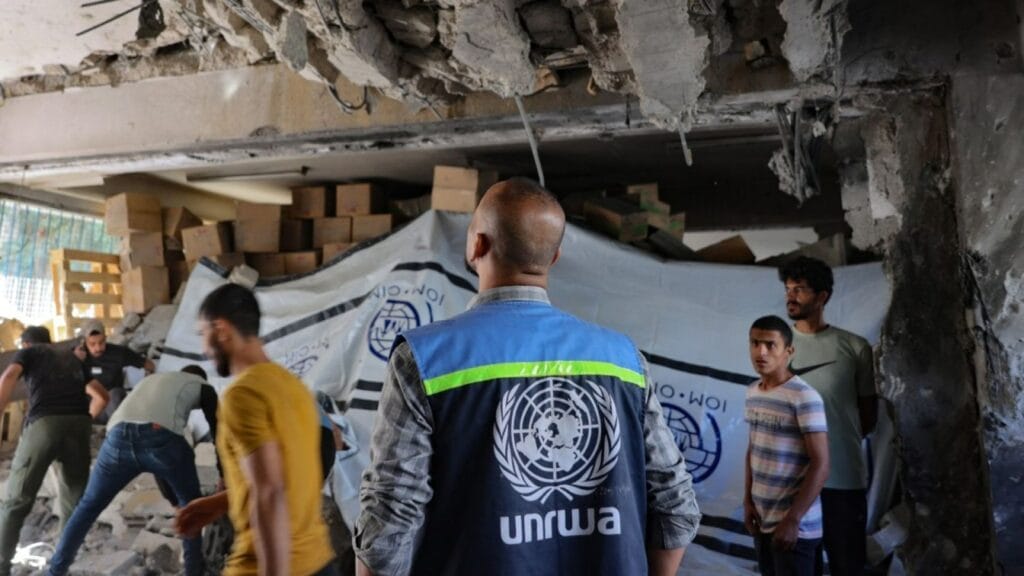Israel’s announcement to ban UNRWA from operating on its soil may have disastrous effects on any humanitarian efforts in Gaza. For decades, this agency has supplied the Palestinians with food, health care, and schooling; today, it faces some intricate, deeply challenging issues.

Background of Law and Development of Israel-UNRWA Relations
The bill passed by a margin of 92-10 and set a new tone in the already tense relationship between Israel and UNRWA. This is more than a fight; this is a definitive step that might have lasting effects. Some Israeli lawmakers, such as Boaz Bismuth, have hailed the bill as one that finally reveals the true colors of UNRWA-being more on the side of the militants than on the humanitarian. However, UNRWA itself denies any deliberate aid to armed factions and claims that while nine employees were indeed dismissed as the result of an investigation of misconduct, “there is no deliberate link to the militants.” This begs the question of whether such a ban confronts an actual problem or simply fans flames without alleviating the humanitarian situation.
The Possible Impact of the Decision on Gaza’s Humanitarian Efforts
This could not be a worse time for such a move to have been made. Indeed, Gaza has been facing acute shortages of food, water, and medical supplies; UNRWA has emerged as one of the few lifelines available to nearly 2 million displaced Palestinians. If even further restrictions are imposed on UNRWA’s ability to function or if it fully collapses, then there is little prospect of an effective successor coming into the fray immediately. For this reason, it is so well-entrenched in Gaza that it has been there for decades and thus enjoys a wide network; expecting another organization to take over its operations could lead to delays and gaps in service.
The move has been condemned by various international bodies, with the U.S. State Department saying it was “deeply concerned” that the legislation would have the effect of further harming those who are most in need-the people of Gaza. For now, there’s growing pressure on Israel to find a way out of this humanitarian crisis, possibly by exploring alternatives that enable continued support for civilians while putting security concerns into consideration.
A Personal Take on the Consequences
As I see it, while the essence of the decision by Israel may be based on security concerns, it incidentally might escalate the already precarious situation in Gaza. On a humanitarian basis, there is the need to ensure that at least the basic needs of the people are met. While one might be so available to argue that Israel seeks self-protection, its outright banning without a backup plan may do more harm than good. How can any government hope to stabilize the region when the basic humanitarian needs go unmet? It is deserved that skepticism be cast upon the operations of UNRWA; however, an action of this sort in such a manner does seem an extreme measure in the absence of a plan for alternative aid distribution.
The Complexities of a Broader Middle Eastern Crisis
Beyond borders such as those of Gaza and Israel, reverberations of this conflict also continue more widely within the broader Middle Eastern region. Ongoing Israeli operations within northern Gaza, even striking near hospitals like the Kamal Adwan Hospital, raise additional concerns about civilian safety and appropriate handling of militants using civilian spaces as shields. While the Israeli military said it had found weapons inside hospital facilities, Palestinian medical officials strenuously disputed this, saying that civilians were being placed in greater danger.
Moving Forward – Cease-Fire Efforts and Mediation
Meanwhile, international mediators work round the clock in efforts to try and establish a cease-fire between Israel and Hamas. Cairo has offered a temporary two-day halt of hostilities in return for the freeing of hostages held by Hamas, and early signs are that Israel may be prepared to consider the offer. A cease-fire, even if brief, could afford both sides an opportunity to take a big-picture look at their positions, perhaps grant a narrow window of time for humanitarian aid to reach the people in need.
In my opinion, a cease-fire could be beneficial, even if temporary, to calm tensions and alleviate some humanitarian strain. However, any attempt to create long-term peace would require addressing the fundamental issues between Israel, Gaza, and international stakeholders like UNRWA.
Minutes by M31GlobalNews






